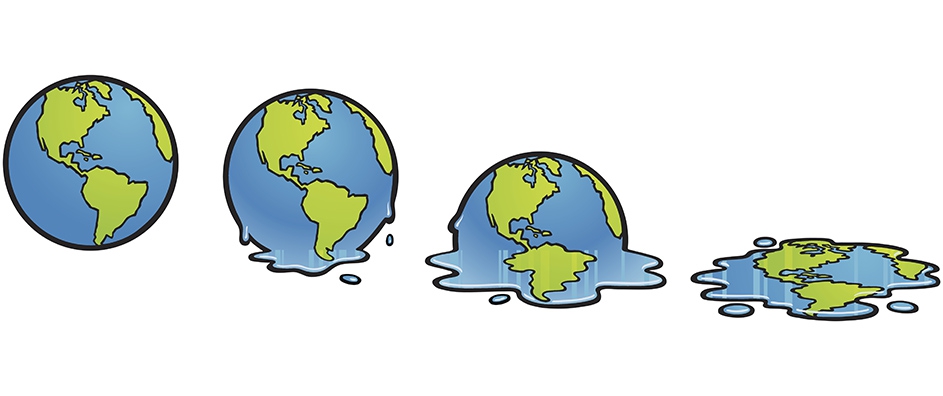The outcome of this intellectual endowment is science, which is especially characteristic of man. This scientific power investigates and apprehends created objects and the laws surrounding them. It is the discoverer of the hidden and mysterious secrets of the material universe and is peculiar to man alone. The most noble and praiseworthy accomplishment of man, therefore, is scientific knowledge and attainment. – Abdu’l-Baha, The Promulgation of Universal Peace, p. 29.
This past March, two outstanding reports on climate change were released– one from the American Association for the Advancement of Science, and the other from the National Academies of Science and the Royal Society.
 Since then, three additional distinguished bodies have issued groundbreaking reports. The unprecedented number of such significant reports over such a short time frame could help open a door to much-needed carbon reduction policies in the United States, as the world prepares to negotiate a new climate treaty in December 2015. U.S. leadership on the climate issue is considered by many as an essential prerequisite to progress on a global treaty.
Since then, three additional distinguished bodies have issued groundbreaking reports. The unprecedented number of such significant reports over such a short time frame could help open a door to much-needed carbon reduction policies in the United States, as the world prepares to negotiate a new climate treaty in December 2015. U.S. leadership on the climate issue is considered by many as an essential prerequisite to progress on a global treaty.
The three new reports are:
- The Fifth Assessment Report of the Intergovernmental Panel on Climate Change – The latest edition of the world’s premier global report on climate change was released in stages over several months (most recently with segments in April and May, with a synthesis report yet to come). It paints a comprehensive picture of climate change, with an emphasis on the Physical Science Basis; Impacts, Adaptation, and Vulnerability; and Mitigation.
- The U.S. National Climate Assessment — Released in May, this report summarizes the impacts of climate change here in the United States, now and in the future. Compiled by more than 300 experts guided by a 60-member Federal Advisory Committee and extensively reviewed by the public and experts, it includes a well laid-out website which makes it very accessible. The report notes that, “Climate change, once considered an issue for a distant future, has moved firmly into the present.” Describing current impacts, region by region and sector by sector, the report reinforces the message that climate change is happening now, and that choices we make will affect our future and that of future generations.
- Risky Business – The Economic Risks of Climate Change in the United States — Released in June, this report takes particular aim at business leaders. It makes it clear that the risks of inaction on climate change are unacceptably high, across all regions and sectors, and will far surpass the economic and social costs of taking positive steps now to address the issue. Of particular interest are a series of short videos featuring the official statements of the project’s Risk Committee, whose members span a broad range of the American political spectrum, including Henry Paulson, Secretary of the Treasury under George W. Bush; Michael Bloomberg, former Mayor of New York; and Robert Rubin, Secretary of the Treasury under President Clinton.
All told, the above reports, and the two published earlier, convey a strong consensus and an urgent call from a variety of perspectives on the importance of immediate and long-term action on climate change in order to protect current and future generations and all life on the planet.
You May Also Like
Comments

















Of more importance than who wrote this little article is who all contributed to the major reports mentioned.